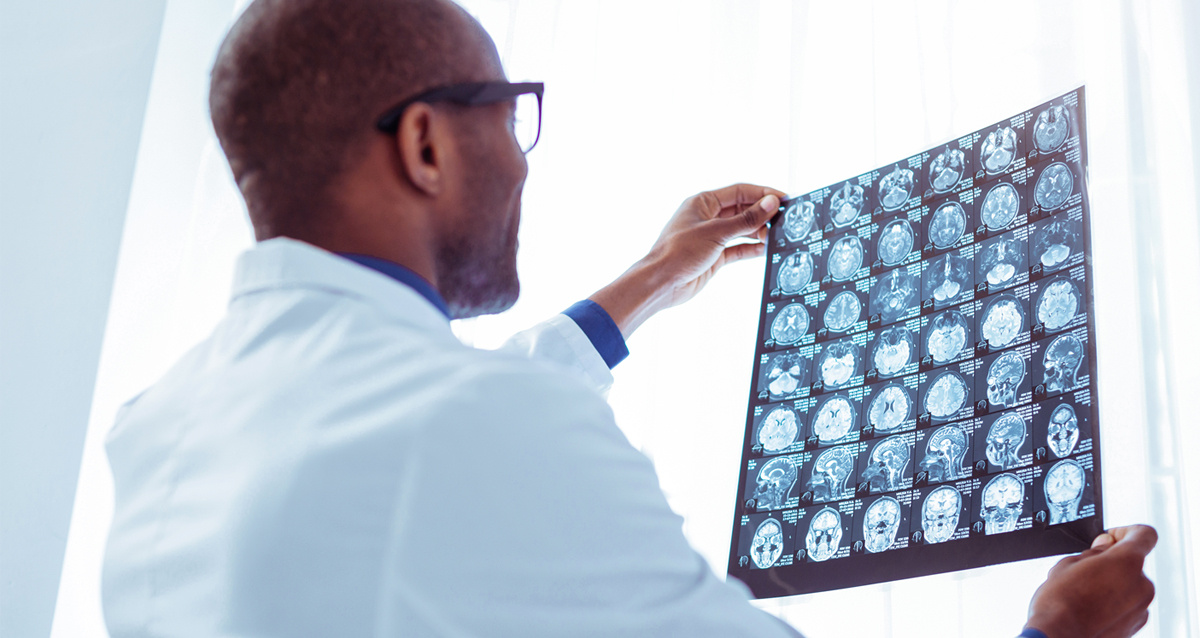
While next generation speech recognition has the potential to further transform radiology, no change comes without some degree of cost and complexity. But with rising backlogs, a culture of litigation, and growing risk for radiologists in the UK, the costs of doing nothing could be significantly greater.
As with every facet of healthcare, radiology departments are no strangers to the idea of controlled risk. A delay or discrepancy in a radiology report always has the potential for severe consequences and a domino effect.
However, with radiologists facing increased pressure to keep up with NHS resource shortages and impossible workloads, that risk is rapidly growing. As a result, entire Trusts and healthcare providers need new ways to reduce errors, deliver consistency, and drive risk down.
The cost of errors and delays to the NHS
At the most fundamental level, issues with radiology reporting – often due to workloads, reporting accuracy, or radiologist cognitive overload – expose Trusts to litigation.
According to NHS statistics, 12,629 clinical claims were made against the NHS in 2020/21. The cost of these claims to the NHS was around £2 billion.
From emergency care to oncology, departments encountered more litigation – and higher compensation amounts – than ever before. In fact, the number of clinical claims was 15% higher than five years ago and 133% higher than 9 years prior. The level of that litigation is not decreasing.
Radiology also reported a significant increase in claims between 2015/16 and 2020/21 – a growth of almost 10%, reflecting 376% growth over the past 9 years. This may have been partly driven by increased usage and reporting – but also the widespread staff shortages, overworked radiologists, and a backlog that was intensified by the pandemic.
Worse, this financial cost is only a reflection of the more human cost – an impact on patient care, standards of practice, and outcomes.
How radiologists are addressing risk
For radiologists, mitigating this significant financial and human cost does not just mean accepting that mistakes happen, but taking proactive steps to reduce the likelihood at every stage. Reporting accuracy is vital, as is checking the standard of accuracy.
Clinical analytics is a growing priority around the world, with signed-off reports analysed for accuracy, errors and outcomes like referrals. In some instances, this data can be used to drive radiologist performance, flagging issues like too few or too many referrals, or identifying overdue exams to avoid adverse outcomes. In this context of increased scrutiny, high quality report data is essential.
While not new, a layer of peer reporting is another way to significantly raise standards in radiology. The Royal College of Radiologists published a detailed report in 2014 on quality assurance and peer feedback, outlining expectations that at least 5% of radiology reports should be screened by peers – that was 8 years ago.
Time has not made this best practice any less challenging in an environment where there is a severe lack of peers to do the reviewing and the profession continues to already be overworked. This kind of initiative depends on the availability of radiologists, free from the pressure of an endless backlog. It also requires reports to be clear and consistent in their format via structured reporting.
However, the right digital approach to reporting can help – and voice-AI driven speech recognition can play a key role.
Speech recognition reduces risk for radiology
Highly accurate, AI-powered speech recognition has the potential to reduce or stop the domino effect of errors at the source. Augnito doesn’t just give radiologists a way to report faster and with fewer errors, but also embracing standards through consistently structured reporting.
Built in partnership with clinicians and radiologists, Augnito delivers 99.3% accuracy out of the box, available on any device: desktop, web, mobile or integrated with existing clinical systems. Clinicians can work however and wherever they need to – without compromising on reporting quality.
Augnito is also designed to support secure sharing, empowering radiologists to adopt more peer review as part of their daily routine. And, because it’s a 100% cloud-hosted solution, there’s no complexity in implementation or ongoing management and maintenance of hardware and infrastructure – which can add unnecessary risk to data loss, costs, and reporting down-time.
Radiologists – and any other department – will always face a measure of risk when it comes to their reporting. Augnito brings increased control to every radiologist, significantly reducing risk – personally, professionally, to the Trust and to patients.

